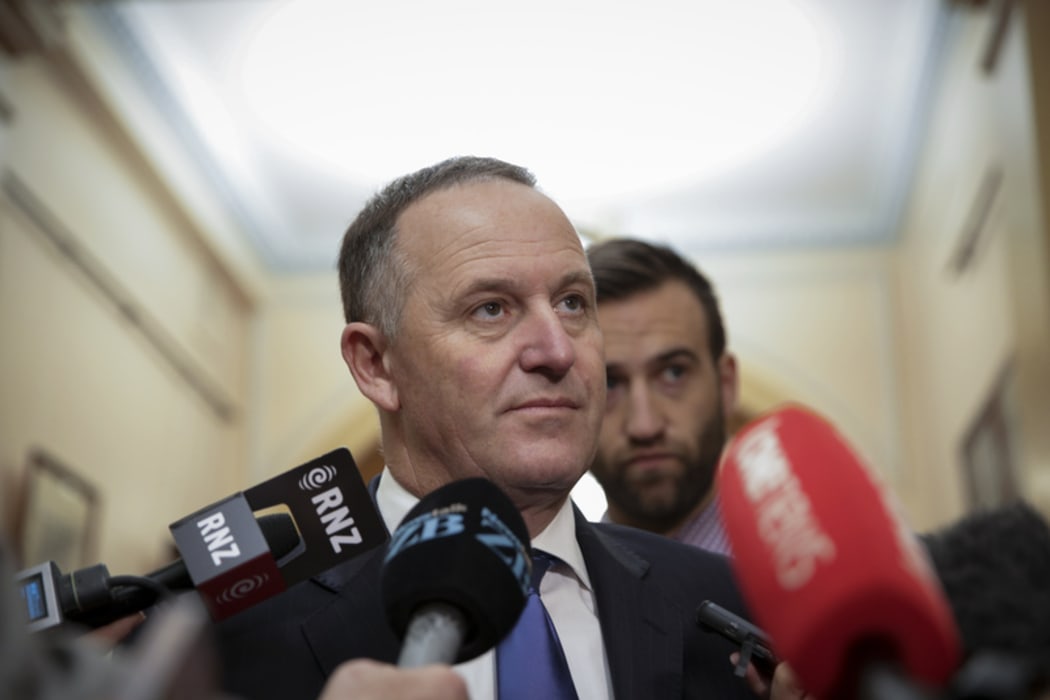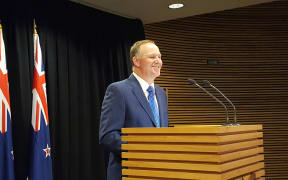Financial markets have quickly put the shock resignation of Prime Minister behind them and want a peaceful, business-as-usual transition to a new government leadership team.

Photo: RNZ / Rebekah Parsons-King
The New Zealand dollar, which dropped about a third of a cent after the announcement to a low of 70.74 US cents, regained its composure and overnight joined a broad strengthening of commodity currencies to sit around 71.3 US cents.
The sharemarket, which lost 0.7 percent on Monday, perked up and follow the positive tone on European and United States. The benchmark NZX-50 index was up 0.2 percent in early trading to 6872.
Mr Key will step down as prime minister and leader of the National Party next Monday, when a special caucus meeting will decide the new leader.
Business groups favour Finance Minister and Deputy Prime Minister Bill English to take the helm and hold to the course economically and fiscally that have prevailed for the past eight years.
Business New Zealand chief executive Kirk Hope said the country and economy needed a calm and stable leadership change.
"What we'd want to see is the same sort of stability from whomever might lead the next government, we want the stability that was an important feature of the Key government."
Rather than radical reform, Mr Key presided over a series of micro reforms to try to boost the country's economic performance, and that approach is expected to continue.
ASB chief economist Nick Tuffley said business confidence may dip slightly in the short term, and that the usual pre-election slowdown of business investment decisions might be longer than normal.
"Longer term, the broad economic strategy of the National Party will depend on the guidance of the new leader, though under a Bill English government the differences might not amount to much given the influence he has been having."
Singapore-based market strategist for TD Securities, Annette Beacher, said she also expected Bill English to move into the top job maintaining market friendly policies and a tight grip on the country's finances.
"While he has excelled as finance minister - delivering consecutive budget surpluses in the last two years - he is unfortunately also remembered ... as a failed National leader."
Ms Beacher said until the leadership issue was settled it was likely there would be some pressure on the New Zealand dollar.
The Moody's international ratings agency said there was no issue for New Zealand's triple-A rating arising from Mr Key's exit.
"We expect New Zealand's very strong institutions to lead to a smooth transition and policy continuity. New Zealand's government has effectively pursued a policy of fiscal consolidation. We do not expect any material change in policy. Government debt will remain low."





